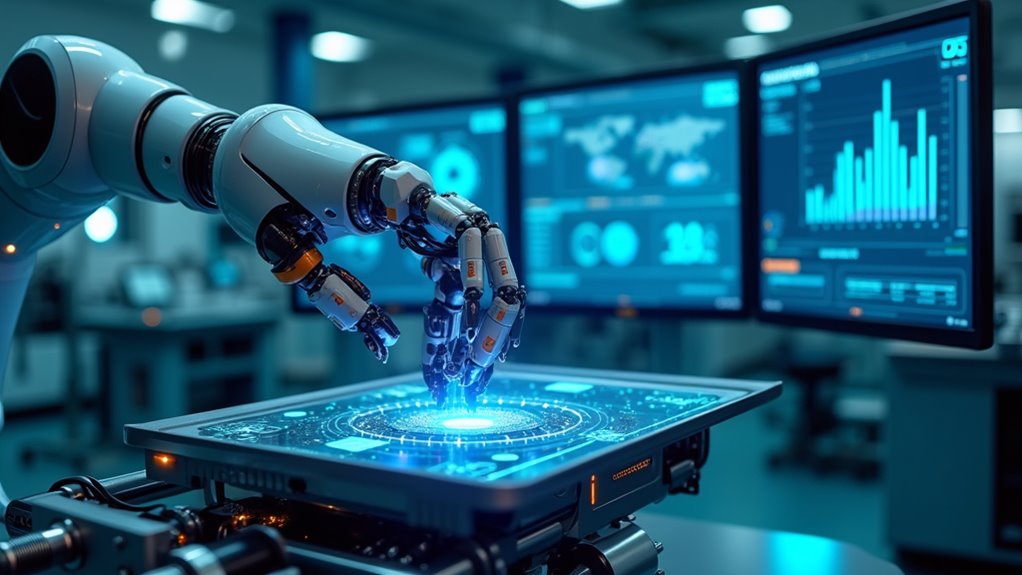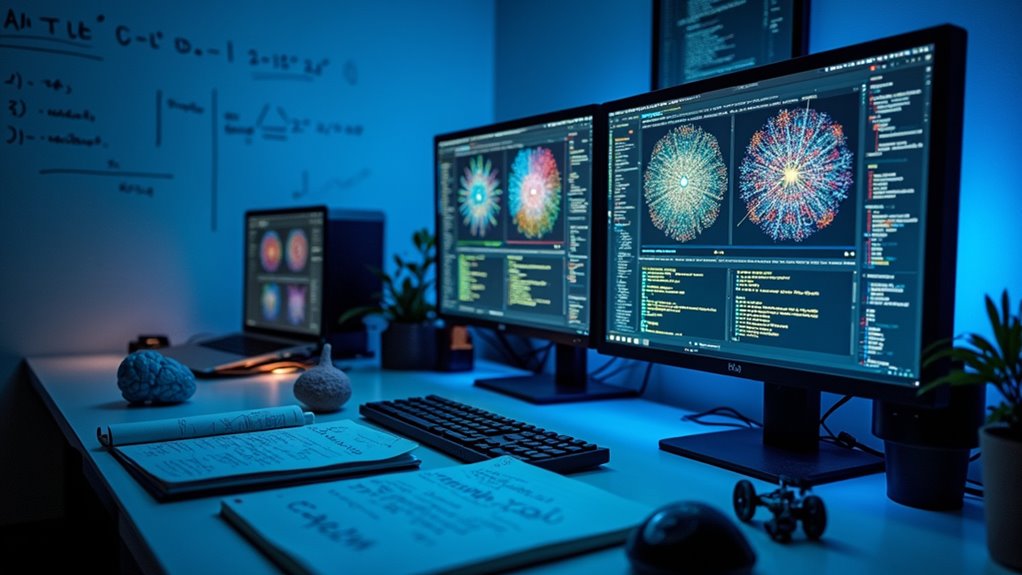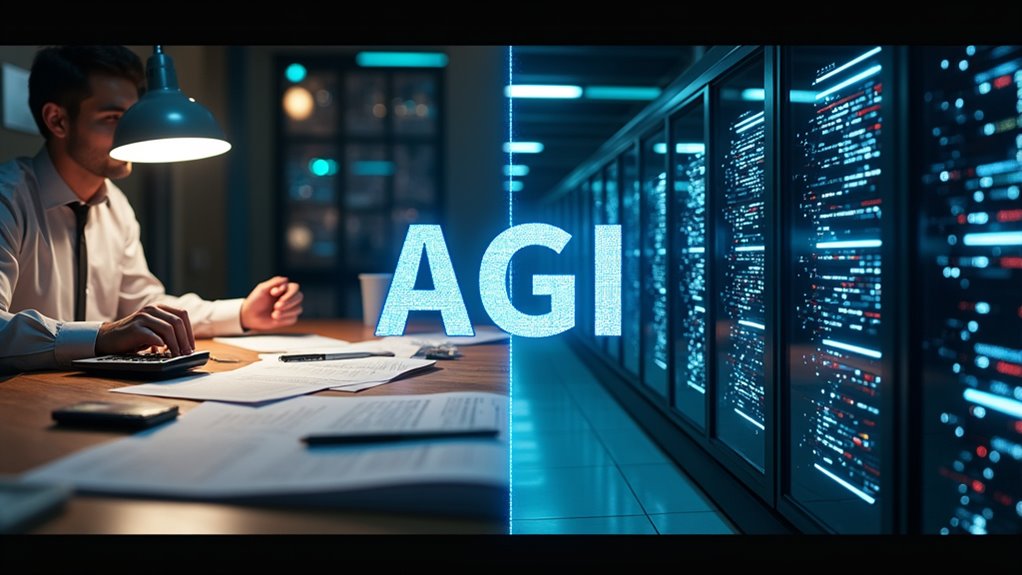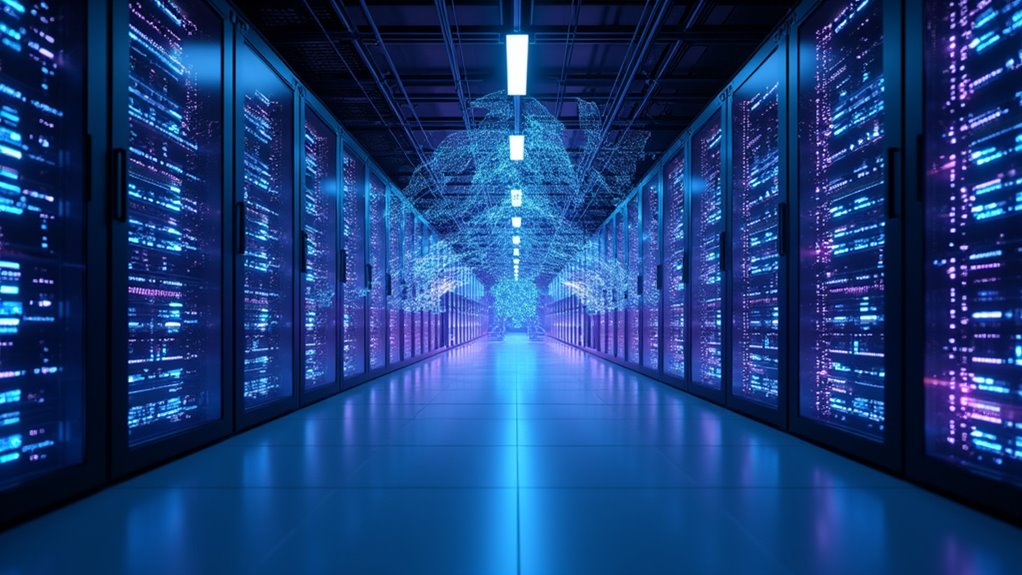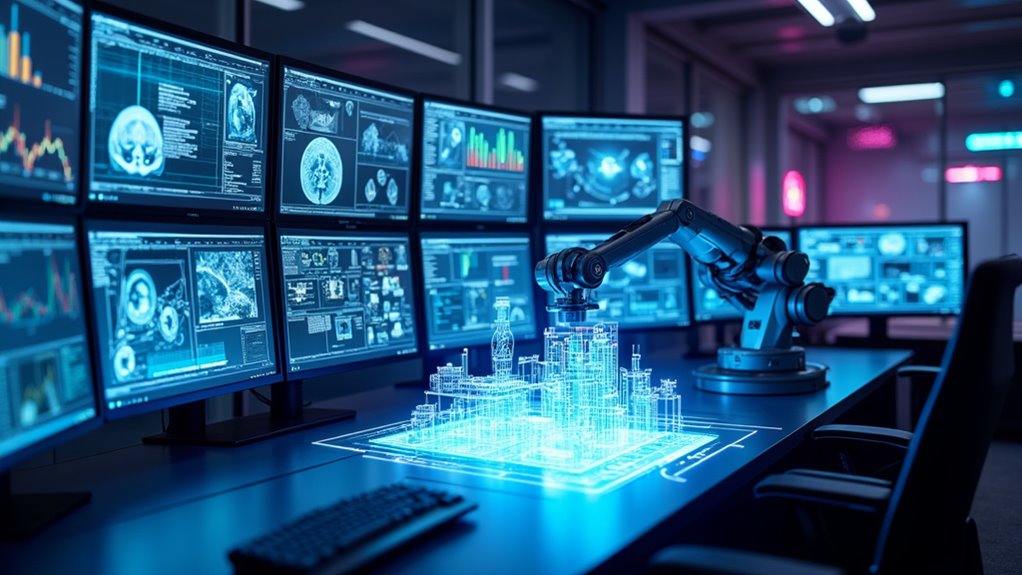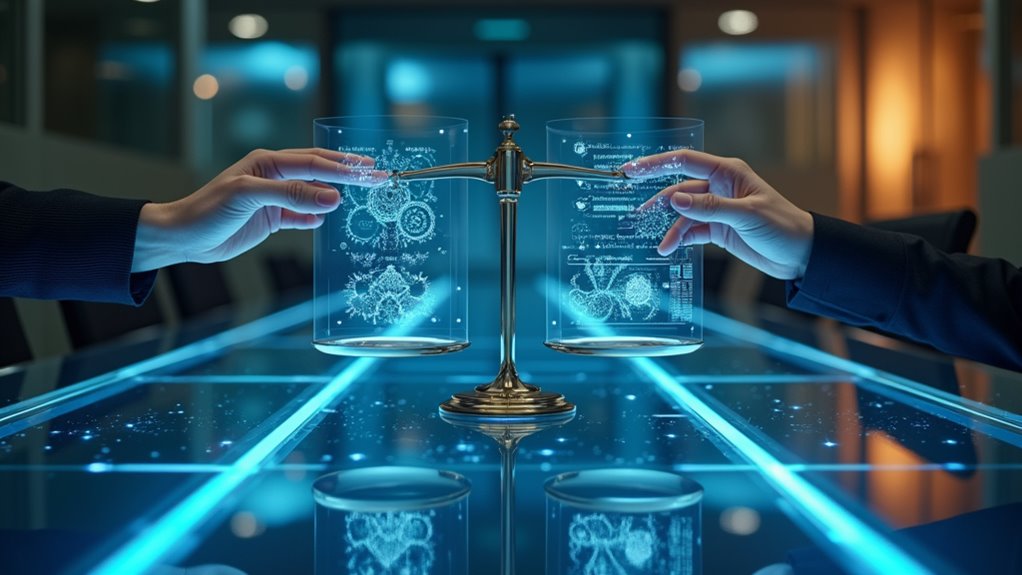AI is revolutionizing multiple industries at breakneck speed. Healthcare leverages it for personalized medicine and disease prediction, while manufacturing uses AI for maintenance and quality control. Banks deploy it to catch fraud instantly, and retailers optimize everything from inventory to marketing. Logistics companies slash delivery times with AI route planning. Companies that ignore this tech revolution risk extinction as competitors embrace smarter systems. Explore how these transformations might reshape your career prospects.
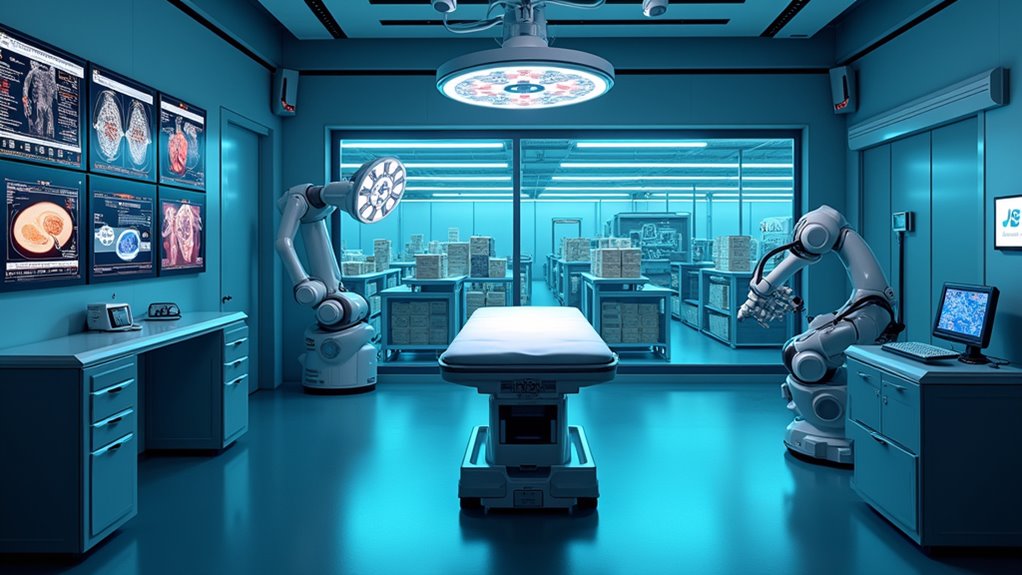
While science fiction once portrayed artificial intelligence as futuristic fantasy, AI now permeates virtually every sector of the global economy. From diagnosing diseases to predicting equipment failures, AI Applications are transforming how businesses operate.
Healthcare professionals use AI for personalized medicine and disease diagnosis, while administrative tasks that once required human attention now happen automatically. AI-powered predictive analytics enables early disease detection before symptoms become apparent, potentially saving countless lives. Don’t think this technology is limited to hospitals, though – it’s everywhere.
AI has transformed healthcare from diagnosis to paperwork, but its impact reaches far beyond hospital walls.
Manufacturing has embraced AI with impressive results. Factories use it for predictive maintenance (that’s fixing machines before they break, not after), quality control, and boosting production efficiency. Connect these systems to IoT devices, and you’ve got a manufacturing powerhouse that would make previous generations gasp.
Financial institutions aren’t sitting idly by. Banks deploy AI to catch fraudsters, execute algorithmic trades, and automate tedious financial processes. JPMorgan Chase specifically utilizes AI for real-time transaction analysis to detect fraudulent activities with greater speed and accuracy. Meanwhile, the automotive industry is racing toward autonomous vehicles that will fundamentally alter transportation. Your car already knows more about you than you might realize!
Retail, hospitality, and logistics sectors are equally transformed. AI optimizes delivery routes, manages inventory, and creates those eerily accurate personalized marketing campaigns hitting your inbox. Supply chain operations are revolutionized through demand forecasting accuracy that drastically reduces waste and improves resource allocation. Yes, that recommendation for hiking boots after you searched “mountain vacation” wasn’t coincidental.
Future Innovations will push these capabilities further. Expect precision medicine tailored to your exact genetic makeup, more sophisticated autonomous systems beyond just vehicles, and AI-powered environmental sustainability initiatives. Virtual assistants will become so integrated into daily life you’ll forget they’re not human.
This technological revolution brings economic consequences too. While some jobs face automation threats, new positions emerge in AI development and management. Workers must adapt by developing new skills – staying complacent isn’t an option.
Companies investing in AI consistently report revenue growth, but they must navigate ethical concerns about privacy and fairness. The AI revolution isn’t coming – it’s already here.
Frequently Asked Questions
How Much Does AI Implementation Typically Cost for Small Businesses?
AI Cost for Small Business implementation typically starts with an initial investment of $5,000 to $30,000.
Ongoing expenses? Expect $1,000-$5,000 monthly, with annual costs averaging around $1,800.
Don’t panic! Cost-effective options exist. Off-the-shelf tools can run just $0-$25,000 yearly, while cloud computing slashes upfront hardware expenses.
Smart businesses leverage pre-trained models rather than building from scratch.
What Ethical Concerns Arise From AI Adoption in Sensitive Industries?
AI adoption in sensitive industries raises several ethical red flags.
Data privacy breaches can expose patient confidentiality, while algorithmic bias might discriminate against vulnerable populations.
Where’s the informed consent when systems are opaque? Transparency issues create accountability nightmares—who’s responsible when AI makes mistakes?
Job displacement threatens livelihoods, particularly in healthcare.
Without robust ethical frameworks, we’re basically letting powerful technology run wild in our most sensitive sectors.
The consequences? Potentially devastating.
Can AI Replace Human Workers Entirely in These Industries?
AI cannot entirely replace human workers across these industries, despite impressive advances.
AI limitations remain significant—machines struggle with creativity, empathy, and complex decision-making that humans excel at. Workforce transformation, not wholesale replacement, is the realistic outcome.
Sure, routine tasks are prime automation targets, but human judgment remains essential in healthcare diagnostics, manufacturing oversight, and educational guidance.
The future isn’t about elimination; it’s about collaboration between human expertise and artificial intelligence capabilities.
How Long Does AI Integration Take Across Different Sectors?
AI integration timelines vary dramatically across sectors.
Healthcare? Expect years of clinical trials and regulatory hoops before that diagnostic AI sees patients.
Manufacturing can implement basic optimization tools in months, thanks to existing infrastructure.
Financial services move quickly too—sometimes deploying AI systems within quarters, not years.
Education? That’s a slow burn, requiring curriculum adjustments and teacher training.
Sector variations aren’t just about technology—regulatory environments, data availability, and workforce readiness all dictate how quickly AI transforms an industry.
What Skills Do Employees Need to Work Alongside AI Systems?
Working alongside AI systems demands a blend of hard and soft capabilities. Employees need technical proficiency in data analysis, programming, and machine learning fundamentals to understand how AI functions.
Just as important are collaboration skills including adaptability, critical thinking, and effective communication to translate AI insights for non-technical colleagues.
Don’t forget ethical awareness—someone needs to make sure those algorithms aren’t secretly plotting world domination!
The most successful human-AI partnerships combine technical knowledge with interpersonal intelligence.
